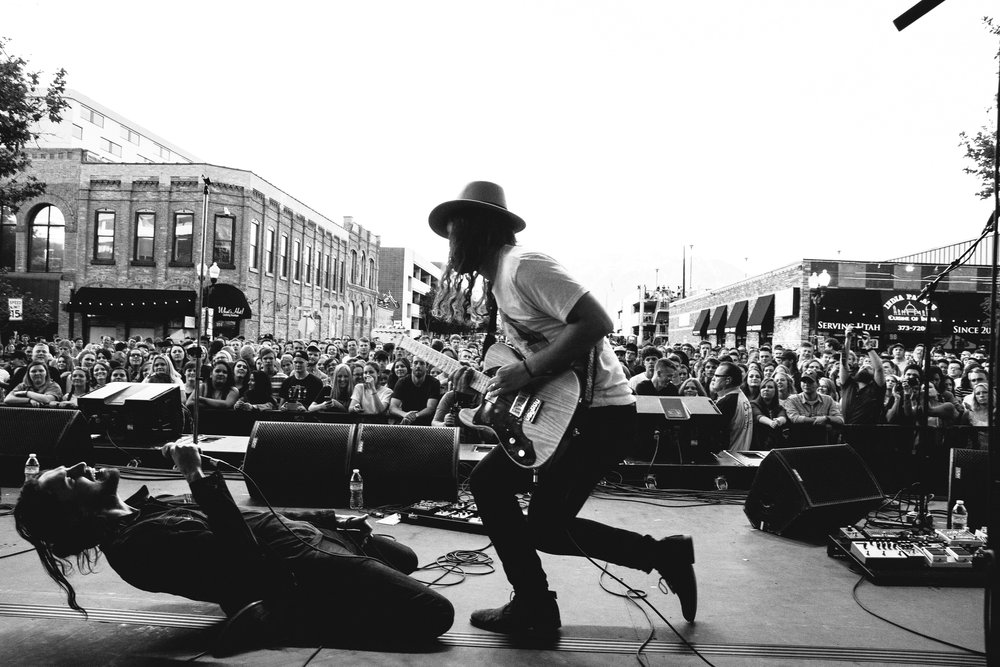Originally published by Charles Wallace.

Photo by NeONBRAND on Unsplash.
Most everyone has attended a live music concert at one point or another (if you haven’t, you’re really missing out on a significant facet of life — get out more), but almost no one is lame enough to simultaneously consider the legal implications of what they are watching (notice I said “almost” no one). I have been attending live music concerts, theatrical and dance performances, and other “gigs” since a very early age, and I have always been fascinated by the creativity required in putting together a show. How much of the musical performance, however, really belongs to the performers (or group, company, etc.), and how much of it was taken? Moreover, how much of another’s work is allowed to be performed without permission, if at all?
I became an attorney, in part, to learn the answer to these types of questions inherent in the entertainment industry. Much to my dissatisfaction, I learned that the answer is largely “it depends” — any attorney can tell you that. However, the question of “what material is a band allowed to perform” can be answered with relative certainty, especially when it comes to a band playing another artist’s song publicly.
First, some context:
In the music industry, there are two different types of copyrights: (1) Musical Works and (2) Sound Recordings. A musical work, or simply, a “song,” is both the lyrics and music that make up the written musical composition itself. A sound recording, on the other hand, is a work made up of recorded sound. The owner of a Musical Work copyright often owns both the copyright in the song itself and the copyright in the Sound Recording of that same song (if one exists).
Among the exclusive rights granted to copyright owners in the music industry is the right to publicly perform the song (see 17 U.S.C. §106(4)) and to perform the sound recording of the song through digital transmission (see 17 U.S.C. §106(6)). For example, if a guitarist plays the all-too-familiar guitar riff to Led Zeppelin’s “Stairway To Heaven” in a public place without permission, that infringes on the band’s Musical Work copyright. Similarly, playing the band’s original recording of the song off a CD or audio track in public would infringe on the band’s Sound Recording copyright. This is where the Performance Rights Organizations (“PROs”) come in.
A PRO, like the American Society of Composers, Authors, and Publishers (“ASCAP”) and Broadcast Music, Inc. (“BMI”), licenses the public performance rights of their songwriter, composer, and producer members to users such as restaurants, bars, and radio stations. These “blanket licenses” give licensees access to a PRO’s full database of songs without licensees having to procure individual licenses from each member of a PRO and without rights holders having to solicit individual licenses to potential customers. Generally, a band does not need a license to perform a cover song live because it is the club, restaurant, or concert venue’s responsibility to obtain the necessary public performance licenses from the PROs. This does not mean, however, that the band is completely insulated from liability when publicly performing others’ songs..
Although it is the audience’s job to enjoy the musical performance, show, or concert (or in my case, to spend half my time considering the legality of what I am witnessing), it is the band’s job to make sure its performance is compliant with laws meant to protect artists from infringing and “free-riding” on others’ work. With respect to the everyday garage band, live musician, or recording artist, here are some helpful notes that may help one avoid a potential lawsuit from infringing on another’s public performance rights:
- Play your own material. I can’t stress this enough — this is, by far, the safest (but not always the most fun) way to insulate yourself from copyright infringement liability. You can’t infringe on your own copyrights, so create away, and play to your heart’s content (then make sure other bands aren’t using your material).
- Check whether the performance venue secured PRO licensing. If a venue has opted not to buy any music performance licenses from any PROs, then it might tell you that you cannot play any other band’s material (“cover” songs). In this case, try to respect this request and refer back to Note 1 above. When in doubt, ask!
- If necessary, purchase your own PRO license. If your show is largely comprised of others’ material, and if the venue you are performing at does not have a license, it is best practice to check with the applicable PRO to see whether they require you to purchase your own license.
These three steps only speak to performing others’ material in full and does not contemplate other types of use such as sampling, parody, and other fair use. Copyright is a complex and specialized area of the law, so it is best to revel in your own creativity and avoid using another’s work. Or consult the PROs.
Curated by Texas Bar Today. Follow us on Twitter @texasbartoday.
from Texas Bar Today https://ift.tt/2rerTbv
via Abogado Aly Website
No comments:
Post a Comment